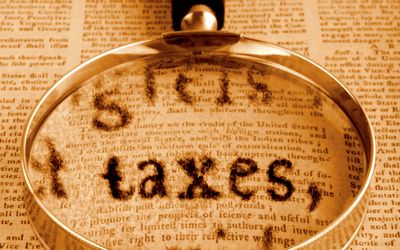IN HIS 2016 state of the nation address, President Jacob Zuma will have to prepare citizens for tax hikes, while simultaneously courting their support for the local government elections.
How can he square this circle? Clues to the possible content of his address can be gleaned from the African National Congress (ANC) statement released after the national executive committee (NEC) lekgotla earlier this week.
The lekgotla demanded "bold actions" to "avert the possibility of a credit ratings downgrade". This is a welcome call. But it remains unclear how this can be realised, given the liberation movement’s contradictory economic dogmas and implacable vested interests.
The NEC has refused to bow down before the institutions and countries that lend money to SA, trade the local currency, rate the quality of our government debt, purchase our equities, or allow preferential access to their markets.
Indeed, after considering a report on the recently renewed African Growth and Opportunity Act, the NEC almost told the Americans where they should insert their chickens. It decided instead to review "all trade agreements entered into by the democratic government since 1999", to assess whether they have advanced SA’s economic interests.
On the expenditure side, the NEC told ministers to "implement stringent cost-cutting measures" and "consolidate the implementation of sound fiscal practices". Despite these familiar gusts of hot air, the party cannot curtail government expenditure: revenue flows to provinces, municipalities and parastatals, commercial interests are now the lifeblood of the liberation movement, and public sector wage increases have already been conceded.
The ANC dare not reduce social welfare benefits in an election year. Zuma’s nuclear energy fantasies remain in play and National Health Insurance will soon reach implementation stage. On top of this, the NEC wants the government to spend 10% of its budget on land reform.
All the weight of adjustment, therefore, falls on the revenue side. With economic growth estimated by the International Monetary Fund at 0.7% this year, and at less than 2% next year, there is no prospect of salvation by buoyant corporate and income tax revenues.
Value-added tax (VAT) rises would appear to be inescapable. But ordinary households are in dire straits. The plunging rand makes imports expensive, administered prices are rising fast, the drought is driving up the cost of basic foodstuffs, and inflation means higher interest rates are on the way. The trade unions and the Economic Freedom Fighters would seize on VAT rises to attack the ANC.
The NEC observed that "the recent emergence of racism" can be explained by persisting economic inequalities: it is because black people remain poor that whites treat them as inferior.
In consequence, the NEC has "reaffirmed wealth redistribution as both a moral and [an] economic imperative".
Preliminary studies by the Davis Committee on tax reform have observed there is little scope for raising additional revenue from personal income tax, and that wealth taxes cannot make any sustainable difference to overall revenue.
Zuma may nevertheless decide to press his finance minister to support a campaign for higher taxes on the rich.
The NEC may indeed be right that redistribution would encourage racial harmony. And a VAT rise that hurts the poor would almost certainly be made more acceptable if accompanied by a symbolic tax on the rich. The danger, however, is that any perceived racialisation of revenue collection would undermine the legitimacy of the tax system. It might even bring closer a "tax strike" the country cannot afford.
• Butler teaches politics at the University of Cape Town





















Change: -0.47%
Change: -0.57%
Change: -1.76%
Change: -0.34%
Change: 0.02%
Data supplied by Profile Data
Change: -1.49%
Change: 0.08%
Change: -0.47%
Change: 0.00%
Change: -0.04%
Data supplied by Profile Data
Change: -0.34%
Change: 0.03%
Change: -0.10%
Change: -0.22%
Change: -0.81%
Data supplied by Profile Data
Change: -0.28%
Change: -1.15%
Change: -0.07%
Change: -1.21%
Change: -0.22%
Data supplied by Profile Data